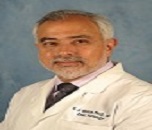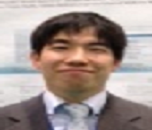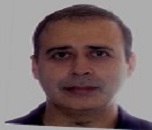Theme: Current Challenges in Delivering Pediatric and Neonatal Research
Pediatrics 2020
New Dates Announced for Pediatrics-2020 Conference
With the amalgamation of peerless speakers of Pediatrics 2019 Conference Series LLC Ltd is privileged to announce its "21st Annual World Congress on Pediatrics" which will be held during March 29-30, 2021 in Barcelona, Spain.
We cordially welcome all the eminent researchers, students and delegates to take part in this upcoming pediatric congress to witness invaluable scientific discussions and contribute to the future innovations in the field of Pediatrics. Pediatrics 2020 conference will focus on the latest and exciting innovations in all the areas of Pediatrics research. This year's annual congress highlights the theme, "Current Challenges in Delivering Pediatric and Neonatal Research" which reflects the innovative progress in Pediatric disease research.
The conference includes child health care workshops, symposiums, special keynote sessions conducted by eminent and renowned speakers who excel in the field of pediatrics which include the topics pediatric immunology, pediatric hematology and oncology, pediatric allergy, pediatric cardiology, pediatric neurology, pediatric psychology, pediatric emergencies etc.
This International Pediatric Conference also encourages the active participation of young student researchers as we are hosting Poster Award Competition and Young research Forum at the conference venue. Details of Pediatrics 2020 Conference in Barcelona: Conference Name Place Date PEDIATRICS 2020 Barcelona, Spain March 29-30, 2021
Details of Pediatric 2020 Conference in Barcelona:
|
Conference Name |
Place |
Date |
|
Barcelona, Spain |
March 29-30, 2021 |
Presenting a paper: The conference Presenters will have chance to present their research papers in front of worldwide eminent people from similar fields and may receive positive feedback and constructive criticism about their research. As well, exchange of ideas within the same fields of interest, which will be an extra mile for their future collaborations across the world.
Publication: Conference proceedings are always best way to publish and indexed your research articles in highly indexed journals (ISSN).
Networking for future collaborations: All the event attendees will get an opportunity to build network with other present academicians, experts and also to share thoughts on recent advancements. The main aim is to augment research interactions during the conference, which will be a collaborative learning and one can upgrade their knowledge or skills in accomplishing institutional objectives.
Added Research Value: To all the attendees belonging to respective field, our organisation is providing the best platform which will add immense research value to your careers. Our committee members are organising the event in a way, to provide open access to various research activities in respective subject with current trends and issues anticipating from them and also our event is accredited with CPD credits(Continuing Professional Development) useful for your maintenance and enhancements for your knowledge.
The focus and energy of Like-Minded Individuals: In our event you can find many young researchers and graduates with same stature, goals and mind-set, this will be the motivational factor as one aspires to overcome fears and achieve one’s dreams.
Target Audience for Pediatrics Conferences:
- Pediatricians
- Health Practitioners
- Pediatric Associations and Societies
- Primary Care Physicians
- Nurses, Family physicians
- Physician assistants
- Neonatologists
- Research Institutes
- Educational Institutes
- Nutrition based companies
- Pharmaceutical companies engaged in manufacturing, development and commercialization of drugs and surgical equipment’s
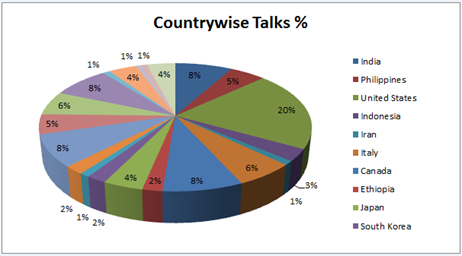
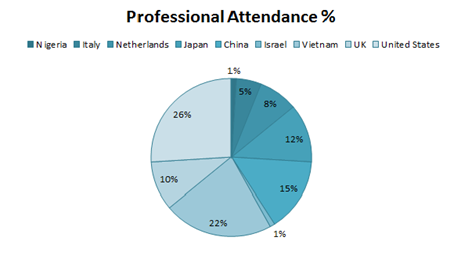
Track 1: General Pediatrics:
The aim of the study of pediatrics is to reduce infant and child rate of deaths, control the spread of infectious disease, promote healthy lifestyles for a long disease-free life and help ease the problems of children and adolescents. It can be acknowledged that this can be reached by learning the major and primary subject on General Pediatrics. General Pediatrics includes the basic treatments involved for the betterment of pediatric health. The most significant problems can be due to nutritional deficiencies to the overall health of infants and children because growth and development can be seriously hindered by shortages in essential vitamins or nutrients.
A child has medical problems that might be genetic which can be learnt under general pediatrics. When a child has medical problems involving more than one body system, screening of genetic abnormalities may be recommended to identify the cause and make a diagnosis. This can be recognized by being educated about the modern imaging risks in children suffering with pediatric genetic disorders. During the course of these techniques providing effective pain management for children is widely recognized as a complicated and challenging aspect. This challenge can be achieved by learning about child psychology and behavioral studies which can ease the complications with the child during the treatment.
Related Societies Europe: European Paediatric Association, European Academy of Paediatrics, European Society for Paediatric Research, European Society of Paediatric and Neonatal Intensive Care
Related Societies USA: American Academy of Pediatrics, American Pediatric Society/Society for Pediatric Research, Pediatric Endocrine Society, Academic Pediatric Association
Related Societies Asia Pacific: Asia Pacific Pediatric Association, Asia Pacific Paediatric Orthopaedic Society, Asian Society for Pediatric Research, Asian Society for Pediatric Infectious Diseases
Track 2: Neonatal Intensive & Critical Care:
Premature birth complications can vary between premature babies and some are more serious than others. Preterm birth complications are the leading cause of death among children under 5 years of age, responsible for nearly 1 million deaths in 2013. Neonatal resuscitation skills are essential for all health care providers who are involved in the delivery of newborns. Clinicians must use the latest non-pharmacologic and pharmacologic therapies for effective management of neonatal pain, distress, or agitation to avoid neonatal complications. As a child is growing it is important to concentrate on health care transition planning. Nutrients and growth factors regulate brain development during fetal and early postnatal life. Hence it is important to know the neonatal nutrition. Kernicterus (Bilirubin encephalopathy) is an acquired metabolic encephalopathy of the neonatal period is one of the toxic influences. Neonatal Polycythemia, defined as a central venous hematocrit (Hct) level of greater than 65%, is a relatively common disorder in neonates.
Related Societies Europe: European Paediatric Association, European Academy of Paediatrics, European Society for Paediatric Research, European Society of Paediatric and Neonatal Intensive Care
Related Societies USA: American Academy of Pediatrics, American Pediatric Society/Society for Pediatric Research, Pediatric Endocrine Society, Academic Pediatric Association
Related Societies Asia Pacific: Asia Pacific Pediatric Association, Asia Pacific Paediatric Orthopaedic Society, Asian Society for Pediatric Research, Asian Society for Pediatric Infectious Diseases
Track 3: Pediatric Cardiology:
The study of Pediatric Cardiology is responsible for the diagnosis of congenital heart defects, performing diagnostic procedures such as echocardiograms, cardiac catheterizations and electrophysiology studies. The increasing number of neonates with congenital heart defects referred to the neonatal intensive care unit reflects the increasing awareness that the defects may be present. Chest radiography and ECG rarely assist in the neonatal diagnosis. Congestive heart failure in the fetus, or hydrops, can be detected by performing fetal echocardiography. In this case, congestive heart failure may represent underlying anemia (eg, Rh sensitization, fetal-maternal transfusion), arrhythmias (usually supraventricular tachycardia), or myocardial dysfunction (myocarditis or cardiomyopathy). Many of the pediatric heart defects such as patent ductus arteriosus interruption, vascular ring division, pericardial window, diaphragm placation, thoracic duct ligation, ligation of collateral vessels have been repaired using pediatric interventional cardiology. The barriers and challenges to achieving routinely applicable Tissue Engineered and Regenerative Cardiac Surgery Methods are also explored as is a novel concept for the Cardiac Hybrid Operating Room Suite of the 21st Century. Apart from these techniques nursing and care for pediatric cardiac patients also plays an important role for the cure of pediatric cardiac patients.
Related Societies Europe: European Paediatric Association, European Academy of Paediatrics, European Society for Paediatric Research, European Society of Paediatric and Neonatal Intensive Care
Related Societies USA: American Academy of Pediatrics, American Pediatric Society/Society for Pediatric Research, Pediatric Endocrine Society, Academic Pediatric Association
Related Societies Asia Pacific: Asia Pacific Pediatric Association, Asia Pacific Paediatric Orthopaedic Society, Asian Society for Pediatric Research, Asian Society for Pediatric Infectious Diseases
Track 4: Pediatric Neurology:
Researchers are engaged in a variety of laboratory and clinical research programs to extend their understanding of the developing nervous system and pathologic processes that underlie neurological disorders in children. The most common neurological disease is pediatric epilepsy. Approximately 70% of children who suffer epilepsy during their childhood eventually outgrow it. Magnetic resonance spectroscopy (MRS) is a diagnostic tool used for inherited metabolic disorders. To date, MRS has been limited to the assessment for cerebral lactic acidosis in mitochondrial disorders in children. Neuromuscular and genetic metabolic diseases are the most common genetic related disorders in children. The new frontier to improve outcomes in crticially ill pediatric patients with neurological illness is Pediatric Neurocritical Care.
Related Societies Europe: European Paediatric Association, European Academy of Paediatrics, European Society for Paediatric Research, European Society of Paediatric and Neonatal Intensive Care
Related Societies USA: American Academy of Pediatrics, American Pediatric Society/Society for Pediatric Research, Pediatric Endocrine Society, Academic Pediatric Association
Related Societies Asia Pacific: Asia Pacific Pediatric Association, Asia Pacific Paediatric Orthopaedic Society, Asian Society for Pediatric Research, Asian Society for Pediatric Infectious Diseases
Track 5: Pediatric Endocrinology:
Pediatric Endocrinology is a medical subspecialty dealing growth disorders and sexual differentiation in childhood, as well as neonatal diabetes and other disorders of the endocrine glands. It also includes the study of the most common types of diabetes are type 1 and type 2 diabetes. There is another type of diabetes that is often misdiagnosed as type 1 or type 2 diabetes, called monogenic diabetes which is seen in children.
Related Societies Europe: European Paediatric Association, European Academy of Paediatrics, European Society for Paediatric Research, European Society of Paediatric and Neonatal Intensive Care
Related Societies USA: American Academy of Pediatrics, American Pediatric Society/Society for Pediatric Research, Pediatric Endocrine Society, Academic Pediatric Association
Related Societies Asia Pacific: Asia Pacific Pediatric Association, Asia Pacific Paediatric Orthopaedic Society, Asian Society for Pediatric Research, Asian Society for Pediatric Infectious Diseases
Track 6: Pediatric Gastroenterology:
Gastrointestinal disorders in children range from minor to life threatening, and short- to long-term or chronic. Neonatal Jaundice is one of the most common conditions needing medical attention in newborn babies. Gastrointestinal food allergies are not rare in infants and children. Gastrointestinal (GI) endoscopic procedure a pediatric endoscopy has become an essential modality for evaluation and treatment of GI diseases. Complex gastrointestinal surgery is one of the common methods to treat GI disorder in children. The principle diseases concerned with pediatric gastroenterology are acute diarrhoea, gastritis, persistent vomiting and problems with the development of the gastric tract.
Related Societies Europe: European Paediatric Association, European Academy of Paediatrics, European Society for Paediatric Research, European Society of Paediatric and Neonatal Intensive Care
Related Societies USA: American Academy of Pediatrics, American Pediatric Society/Society for Pediatric Research, Pediatric Endocrine Society, Academic Pediatric Association
Related Societies Asia Pacific: Asia Pacific Pediatric Association, Asia Pacific Paediatric Orthopaedic Society, Asian Society for Pediatric Research, Asian Society for Pediatric Infectious Diseases
Track 7: Pediatric Psychology:
Nearly every child or teen faces some challenges as they grow up because of peer pressure, family changes, a death or other loss, managing a chronic illness, or simply because it isn’t easy making the change from being a child to being an adult. Poor mental health can affect overall well-being and can lead to emotional and behavioral changes, ADHD and learning disabilities. Many children experience loss or stress, and others must manage their chronic illness at a young age. Some children have a disorder that runs in the family and puts them at higher risk for depression or anxiety. Some children may also be affected due to school problems and relationship problems and leads to behavioral and developmental disorders. If a child or teen shows extreme anxiety, depression, problems with nightmares and sleeping, aggressive behaviors or if he talks of suicide, seek immediate cognitive behavioral therapies.
Related Societies Europe: European Paediatric Association, European Academy of Paediatrics, European Society for Paediatric Research, European Society of Paediatric and Neonatal Intensive Care
Related Societies USA: American Academy of Pediatrics, American Pediatric Society/Society for Pediatric Research, Pediatric Endocrine Society, Academic Pediatric Association
Related Societies Asia Pacific: Asia Pacific Pediatric Association, Asia Pacific Paediatric Orthopaedic Society, Asian Society for Pediatric Research, Asian Society for Pediatric Infectious Diseases
Track 8: Pediatric Pulmonology:
Pediatric pulmonology is a medical specialty that deals with diagnosis and treatment of diseases involving respiratory tract. Pediatric pulmonology is a combination of both pulmonology and pediatrics. Pediatric pulmonologists are specially trained in pulmonary pediatric diseases and conditions of the chest, particularly pneumonia, asthma, tuberculosis, complicated chest infections, etc. Epiglottitis is a cause of pediatric dyspnea that should be considered by the EMT when evaluating children in respiratory distress. Hence it is important to study the diagnosis, immunization and preventive measure of these diseases.
Related Societies Europe: European Paediatric Association, European Academy of Paediatrics, European Society for Paediatric Research, European Society of Paediatric and Neonatal Intensive Care
Related Societies USA: American Academy of Pediatrics, American Pediatric Society/Society for Pediatric Research, Pediatric Endocrine Society, Academic Pediatric Association
Related Societies Asia Pacific: Asia Pacific Pediatric Association, Asia Pacific Paediatric Orthopaedic Society, Asian Society for Pediatric Research, Asian Society for Pediatric Infectious Diseases
Track 9: Pediatric Rheumatology:
A rheumatic disease affects the joints, muscles and connective tissues. Some, like osteoarthritis, are the result of wear and tear. Others, such as rheumatoid arthritis, are immune system problems. Treatment plan will likely include medications, regular exercise, a healthy diet, stress management, and rest. Common Rheumatic disorders are Lyme disease, Systemic lupus Erythematosus, Behcet's Disease, Polymyalgia Rheumatica, Rheumatic fever. Lupus erythematosus is a name given to a collection of autoimmune diseases in which the human immune system becomes hyperactive and attacks normal, healthy tissues. Rheumatic fever is an inflammatory disease that can involve the heart,joints, skin, and brain. Many rheumatic diseases are chronic conditions. They are unlikely to go away. There may not be a cure for our condition, but effective management is available for most. Many people with rheumatic disease lead happy, satisfying lives year after year.
Related Societies Europe: European Paediatric Association, European Academy of Paediatrics, European Society for Paediatric Research, European Society of Paediatric and Neonatal Intensive Care
Related Societies USA: American Academy of Pediatrics, American Pediatric Society/Society for Pediatric Research, Pediatric Endocrine Society, Academic Pediatric Association
Related Societies Asia Pacific: Asia Pacific Pediatric Association, Asia Pacific Paediatric Orthopaedic Society, Asian Society for Pediatric Research, Asian Society for Pediatric Infectious Diseases
Track 10: Pediatric Oncology:
It can be frightening to hear that a child has cancer or a blood disorder. It is acknowledged that neuroblastoma is the most common extracranial solid tumor of infancy. It is an embryonal malignancy of the sympathetic nervous system arising from neuroblasts (pluripotent sympathetic cells). Researchers are looking for genetic source of childhood cancer. The common blood disorders in children are leukemia and lymphoma. Leukemia is a disease of the white blood cells. The most common type of pediatric leukemia is acute lymphocytic leukemia. Other types of leukemia that occur less frequently in children are acute myeloid leukemia, and chronic myeloid leukemia. Lymphomas (Hodgkin and non-Hodgkin lymphoma) are the third most common cancer in children. Based on the characteristics and microscopic appearance of the cancer cell, the pediatric lymphomas are divided into Hodgkin Lymphoma and Non-Hodgkin lymphoma. Hence learning more about the advances in cancer detection and images becomes a prominent subject to cure childhood cancer.
Related Societies Europe: European Paediatric Association, European Academy of Paediatrics, European Society for Paediatric Research, European Society of Paediatric and Neonatal Intensive Care
Related Societies USA: American Academy of Pediatrics, American Pediatric Society/Society for Pediatric Research, Pediatric Endocrine Society, Academic Pediatric Association
Related Societies Asia Pacific: Asia Pacific Pediatric Association, Asia Pacific Paediatric Orthopaedic Society, Asian Society for Pediatric Research, Asian Society for Pediatric Infectious Diseases
Track 11: Pediatric Hepatology:
Hepatology is a branch of medicine concerned with the study, prevention, diagnosis and management of diseases that affect the liver, gallbladder, biliary tree and pancreas. The term is derived from the Greek words hepatikos and logia, which mean liver and study.
Related Societies Europe: European Paediatric Association, European Academy of Paediatrics, European Society for Paediatric Research, European Society of Paediatric and Neonatal Intensive Care
Related Societies USA: American Academy of Pediatrics, American Pediatric Society/Society for Pediatric Research, Pediatric Endocrine Society, Academic Pediatric Association
Related Societies Asia Pacific: Asia Pacific Pediatric Association, Asia Pacific Paediatric Orthopaedic Society, Asian Society for Pediatric Research, Asian Society for Pediatric Infectious Diseases
Track 12: Pediatric Nutrition:
Pediatric nutrition is the maintenance of a proper well-balanced diet consisting of the essential nutrients and the adequate caloric intake necessary to promote growth and sustain the physiologic requirements at the various stages of a child's development. Pediatric nutritional needs vary considerably with age, level of activity, and environmental conditions and they are directly related to the rate of growth. Breast Feeding has important ingredients that are not found in any infant formula, to build the baby’s immune system. Pediatric nutrition must consist of essential Vitamins and Minerals which help for the growth and development. Proteins are the basic units required mainly for the construction of the body muscles and in all the metabolic activities of the body. To increase the calcium levels intake of dairy products are needed.
Related Societies Europe: European Paediatric Association, European Academy of Paediatrics, European Society for Paediatric Research, European Society of Paediatric and Neonatal Intensive Care
Related Societies USA: American Academy of Pediatrics, American Pediatric Society/Society for Pediatric Research, Pediatric Endocrine Society, Academic Pediatric Association
Related Societies Asia Pacific: Asia Pacific Pediatric Association, Asia Pacific Paediatric Orthopaedic Society, Asian Society for Pediatric Research, Asian Society for Pediatric Infectious Diseases
Track 13: Pediatric Hematology:
Pediatric hematology is the branch of pediatrics dealing with study, diagnosis, treatment and prevention different types of blood disorders including the study of bleeding and clotting disorders in children. The study of Tumor Cell Biology reviews applications concerned with signal transduction mechanisms in neoplastic cells, and regulation of tumor cell phenotype and behavior, and tumor progression. It important to study causes, risk factors and the hypothesis in pediatrics with hematology disorders. A medical practitioner who specializes in this field of pediatric hematology is called pediatric hematologist. It is important that one should be familiar with the educational and preventive measures in order to prevent children being affected with blood disorders.
Related Societies Europe: European Paediatric Association, European Academy of Paediatrics, European Society for Paediatric Research, European Society of Paediatric and Neonatal Intensive Care
Related Societies USA: American Academy of Pediatrics, American Pediatric Society/Society for Pediatric Research, Pediatric Endocrine Society, Academic Pediatric Association
Related Societies Asia Pacific: Asia Pacific Pediatric Association, Asia Pacific Paediatric Orthopaedic Society, Asian Society for Pediatric Research, Asian Society for Pediatric Infectious Diseases
Track 14: Pediatric Allergy & Infectious Diseases:
Pediatric Allergy is an important subject to be learnt in order to promote understanding and advance the treatment of respiratory, allergic, and immunologic diseases in children. It emphasizes the epidemiologic research on the most common chronic illnesses of children—asthma and allergies—as well as many less common and rare diseases. Swollen or enlarged adenoids and Tonsils are common in children. Environmental and food allergies in children occur when the children’s immune system reacts to normal harmless substances present in the environment. Pneumonia is often caused by viruses, such as the influenza virus (flu) and adenovirus. Other viruses, such as respiratory syncytial virus (RSV) and human metapneumovirus, are common causes of pneumonia in young kids and babies. Some of the Allergic reactions in children include, red eyes, atopic dermatitis (eczema), itchiness, runny nose, urticaria (hives), an asthma attack and sinusitis.
Related Societies Europe: European Paediatric Association, European Academy of Paediatrics, European Society for Paediatric Research, European Society of Paediatric and Neonatal Intensive Care
Related Societies USA: American Academy of Pediatrics, American Pediatric Society/Society for Pediatric Research, Pediatric Endocrine Society, Academic Pediatric Association
Related Societies Asia Pacific: Asia Pacific Pediatric Association, Asia Pacific Paediatric Orthopaedic Society, Asian Society for Pediatric Research, Asian Society for Pediatric Infectious Diseases
Track 15: Pediatric Trauma & Depression:
Children with fever account for as many as 25% of pediatrics emergency department (ED) visits, and the underlying disorders in these cases range from mild conditions to the most serious of bacterial and viral illnesses. Asphyxial cardiac arrest is more common than VF cardiac arrest in infants and children, and ventilations are extremely important in pediatric resuscitation. The track includes Pediatric thoracolumbar spine trauma, Child Abuse & Management, Educational & Preventive Measures, Skull Fractures.
Related Societies Europe: European Paediatric Association, European Academy of Paediatrics, European Society for Paediatric Research, European Society of Paediatric and Neonatal Intensive Care
Related Societies USA: American Academy of Pediatrics, American Pediatric Society/Society for Pediatric Research, Pediatric Endocrine Society, Academic Pediatric Association
Related Societies Asia Pacific: Asia Pacific Pediatric Association, Asia Pacific Paediatric Orthopaedic Society, Asian Society for Pediatric Research, Asian Society for Pediatric Infectious Diseases
Track 16: Pediatric Care & Nursing:
Pediatric Care Nursing is the combination of pediatrics and nursing. Specially trained nurses from field of pediatrics plays a major role in pediatric nursing. The track includes The Importance of Health Care, Neonatal intensive care and Nursing, Schizophrenia and Nursing care, Psychiatric & Mental Health Nursing. Emergency care nursing is the important part of training given to medical nurses and graduates, so that in case if absence of a complete emergency practitioner, they can be a help for patients.
Related Societies Europe: European Paediatric Association, European Academy of Paediatrics, European Society for Paediatric Research, European Society of Paediatric and Neonatal Intensive Care
Related Societies USA: American Academy of Pediatrics, American Pediatric Society/Society for Pediatric Research, Pediatric Endocrine Society, Academic Pediatric Association
Related Societies Asia Pacific: Asia Pacific Pediatric Association, Asia Pacific Paediatric Orthopaedic Society, Asian Society for Pediatric Research, Asian Society for Pediatric Infectious Diseases
Track 17: Pediatric Surgery:
Pediatric surgery is a branch of pediatrics which is dealing with all the surgical operations of children. It is a combination of both surgery and pediatrics. Pediatric surgery is responsible for the treatment of many disorders through surgical operations in children and playing vital role in saving lives at birth stage by newborn and fetal surgery. Pediatric surgery can be mainly divided into two sub categories, known as, pediatric cardiothoracic surgery, pediatric surgical oncology, pediatric nephrological surgery, pediatric neurosurgery, pediatric urological surgery, pediatric hepatological surgery, pediatric orthopedic surgery, pediatric vascular surgery and pediatric oncological surgery.
Related Societies Europe: European Paediatric Association, European Academy of Paediatrics, European Society for Paediatric Research, European Society of Paediatric and Neonatal Intensive Care
Related Societies USA: American Academy of Pediatrics, American Pediatric Society/Society for Pediatric Research, Pediatric Endocrine Society, Academic Pediatric Association
Related Societies Asia Pacific: Asia Pacific Pediatric Association, Asia Pacific Paediatric Orthopaedic Society, Asian Society for Pediatric Research, Asian Society for Pediatric Infectious Diseases
We gratefully thank all our wonderful Keynote Speakers, Speakers, Delegates, Students, Organizing Committee Members, Associations, Sponsors, Exhibitors and Media Partners for making our Past Pediatrics Conferences (during 2015, 2016, 2017 & 2018 in USA Region) the best ever!
-
3rd International Conference on Pediatrics, May 18-20, 2015
- Venue: Hilton San Antonio Airport,611 Northwest Loop 410, San Antonio, TX 78216, USA
-
4th International Conference on Pediatrics, March 29-31, 2016
- Venue: Hilton Atlanta Airport Hotel, 1031 Virginia Avenue, Atlanta, 30354 Georgia, USA
-
​​10th International Conference on Pediatrics, March 23-25, 2017
- Venue: Holiday Inn Orlando Airport, 5750 T.G. Lee Blvd, Orlando, FL 32822, USA
-
16th International Conference on Pediatrics, March 21-22, 2018
- Venue: Hilton New York JFK Airport Hotel, 5144-02 135th Avenue, Jamaica New York 11436, USA​
-
​​20th Annual World Congress on Pediatrics, March 18-19, 2019
- Venue: DoubleTree by Hilton Hotel Chicago, North Shore Conference Center, Chicago, IL 60077, USA
Conference Highlights
- General Pediatrics
- Pediatric Hepatology
- Pediatric Neurology
- Neonatal/Pediatric Intensive & Critical Care
- Pediatric Nutrition
- Pediatric Hematology & Nephrology
- Pediatric Cardiology
- Pediatric Oncology
- Pediatric Allergy & Infectious Diseases
- Pediatric Trauma & Depression
- Pediatric Rheumatology
- Pediatric Pulmonology
- Pediatric Psychology
- Pediatric Endocrinology
- Pediatric Gastroenterology
- Pediatric Care & Nursing
- Pediatric Anesthesia and Surgery
- Novel Coronavirus Outbreak
- Public Health Program in Pediatrics
- Child health development program
To share your views and research, please click here to register for the Conference.
To Collaborate Scientific Professionals around the World
| Conference Date | March 29-30, 2021 | ||
| Sponsors & Exhibitors |
|
||
| Speaker Opportunity Closed | |||
| Poster Opportunity Closed | Click Here to View | ||
Useful Links
Special Issues
All accepted abstracts will be published in respective Our International Journals.
Abstracts will be provided with Digital Object Identifier by







